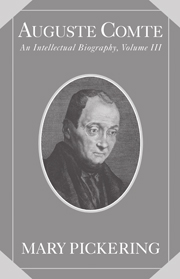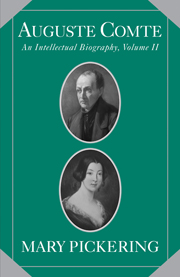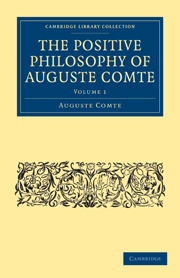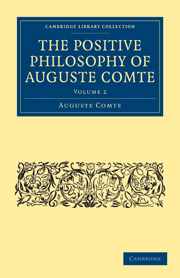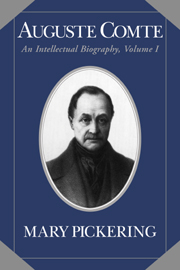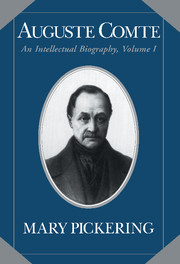Auguste Comte
This volume continues to explore the life and works of Auguste Comte during his so-called second career. It covers the period from the coup d'état of Louis Napoleon in late 1851 to Comte's death in 1857. During these early years of the Second Empire, Comte became increasingly conservative and anxious to control his disciples. This study offers the first study of the tensions within his movement. Focusing on his second masterpiece, the Système de politique positive, and other important books, such as the Synthèse subjective, Mary Pickering not only sheds light on Comte's intellectual development but also traces the dissemination of positivism and the Religion of Humanity throughout many parts of the world.
- This biography examines the life and thought of Auguste Comte, the founder of positivism, sociology, the history of science, and the Religion of Humanity
- It offers the first in-depth examination of his disciples and his political movement
- It provides an analysis of one of the most famous couples in history, Comte and Clotilde de Vaux
Reviews & endorsements
'Mary Pickering has spent thirty years of her life working on her biography of Auguste Comte, and the resulting two thousand or so pages are evidence of the amount of research and documentation involved.' Keith Gore, Nineteenth-Century French Studies
Product details
November 2009Hardback
9780521119146
682 pages
236 × 164 × 35 mm
1.05kg
Available
Table of Contents
- Introduction
- 1. The coup d'état and its consequences
- 2. Comte's stumblings
- 3. The vicissitudes of Positivism during the early empire
- 4. Système de politique positive: natural and social philosophy
- 5. Système de politique positive: Comte's philosophy of history
- 6. Système de politique positive: Comte's utopia
- 7. The last years: politics and propaganda
- 8. The last flurry of activity: the Testament and Synthèse subjective
- 9. The death of the great priest of humanity and his influence
- Conclusion.

